The Palestinian Authority should propose a mechanism for the opening of the Gaza border crossings in accordance with the ceasefire agreement, leading member of the Hamas movement Mousa Abu-Marzouk said yesterday.In an interview with Al-Aqsa Satellite Channel, Abu-Marzouk said the opening of borders should not be confined to the opening of the Kerem Shalom crossing with Israel.
The Gaza Strip has seven border crossings, six of which are under Israeli control, while only the Rafah crossing is controlled by Egypt.
Following Hamas’ victory in the Gaza elections in 2007, Israel closed four commercial crossings and left only two partially operating, including Kerem Shalom.
Concerning the Rafah crossing, Abu-Marzouk pointed out that Egypt wants the Palestinians to manage it but that it does not consider Hamas a legitimate government.
Abu-Marzouk accused the Palestinian unity government of delaying the implementation of measures that would address the conditions of Egyptians to open the border crossing to alleviate the suffering of Gaza’s residents.
Egypt has closed the Rafah crossing since the military’s ouster of President Mohamed Morsi last summer.
During the Israeli offensive, Egyptian authorities opened it for the movement of casualties and strictly for humanitarian cases.
The ceasefire agreement has not addressed the opening of the Rafah crossing, under the pretext that it’s a Palestinian-Egyptian matter unrelated to Israel.
In a similar context, Abu-Marzouk said he expects the unity government to pay the salaries of Gaza employees next Wednesday.
He pointed out that during the Cairo negotiations, Hamas insisted on the condition of lifting economic barriers facing the unity government, but that Fatah representatives said the issue had been resolved that that there was no need to include this in the agreement.
Some 50,000 civil servants in Gaza have not received their salaries since May. Hamas says it agreed with Fatah last April that the unity government would be tasked with the payment of all salaries of Gaza employees. The government, however, only paid the West Bank employees, which led to a wave of protests and strikes in Gaza.
Abu-Marzouk added that the Palestinian resistance will honour the ceasefire agreement so long as Israel does not breach it.
He stressed on Gaza’s demand to have an airport and seaport, pointing out that Palestinians will pursue various means to pressure Israel to address these demands.
Concerning the reconstruction of Gaza, Abu-Marzouk said that the unity government is the one in charge of this issue.
The Palestinian and Israeli sides signed an Egyptian-sponsored long-term ceasefire agreement on Tuesday. Palestinian resistance factions considered the agreement a “victory” and stressed that they achieved most of their goals during the battle with Israel.
The agreement, according to the Egyptian foreign ministry, calls for a comprehensive and mutual ceasefire as well as the immediate opening of border crossings between Gaza and Israel to allow for the entrance of humanitarian aid and reconstruction materials.
The agreement also stipulates the extension of Gaza’s Mediterranean fishing zone and the continuation of the negotiations over all other issues, such as prisoners, the airport and seaport, to take place within a month of the ceasefire.
The truce came after a 51-day offensive on Gaza that resulted in Israel killing about 2,150 Palestinians and injuring at least 11,000 others, mostly civilians.
On the other hand, Israel says it lost 65 soldiers and four civilians, as well as a foreign worker. Israeli NGOs say that 2,522 Israelis, including 750 soldiers, received medical treatment during the war, according to Anadolu.
![]()
THE LEGAL RIGHT OF RESISTANCE
MORAL, HISTORICAL & LEGAL RIGHT OF SELF-DEFENSE
GENOCIDE & ETHNIC CLEANSING OF PALESTINE
DEBUNKING THE ISRAELI MYTHS


 September 1, 2014
September 1, 2014 
![[File photo] Abu-Marzouk [Pictured above] accused the Palestinian unity government of delaying the implementation of measures that would address the conditions of Egyptians to open the border crossing to alleviate the suffering of Gaza's residents.](https://occupiedpalestine.wordpress.com/wp-content/uploads/2014/09/mousa-abu-marzouk.jpg?w=588&h=392)









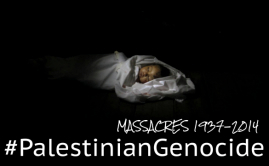












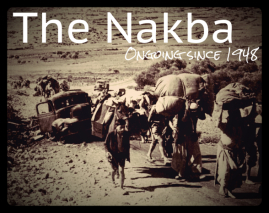
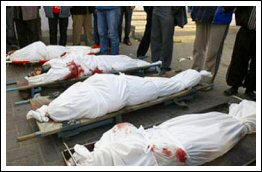



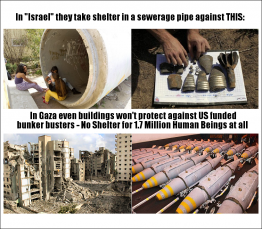



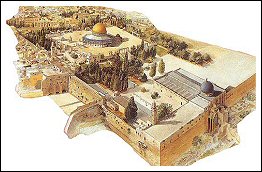


Comments are closed.